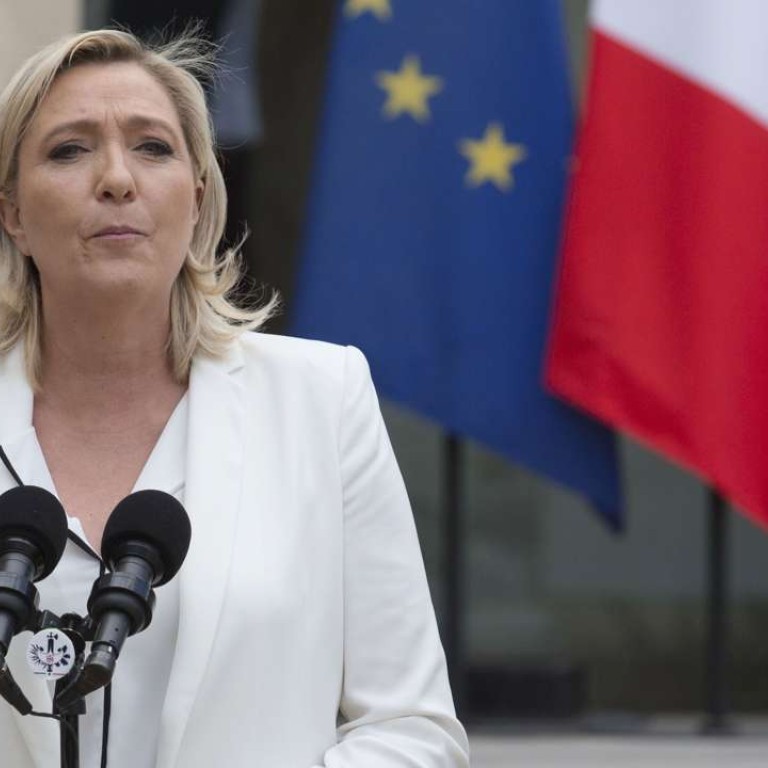
What all these conspiracy theories are telling us about ourselves
New research by Standard Chartered delves into the age of disaffection and the rejection of perceived elites
In a recent piece titled “The Rise of Fringe Politics”, Standard Chartered investment strategist Philippe Dauba-Pantanacce looked at how populist paranoia is buoying non-traditional political parties or candidates.
“A growing phenomenon that is playing an important new role – helped by the development of the internet – is the rise of conspiracy theories. These can have the same roots as fringe politics (a loss of trust in the establishment and mainstream media), and the two can reinforce each other,” the report said.
Dauba-Pantanacce points to the tendency of politicians to make grand and unrealistic campaign promises. When there is no follow-up, voters revolt against the mainstream and try alternatives, whether that be the UK Independence Party, the tea party in the United States, or the National Front in France.

He writes: “The disconnect between campaign promises and the actual policies implemented after elections will generally lead to a disaffection with politics, a rejection of the perceived elites and of traditional mainstream parties and, ultimately, the rise of fringe politics and anti-system parties driven by a belief in ‘disruption’ or ‘trying something different’.”
Well, that seems fair enough - why not throw the lying bums out? Unfortunately, some of the outsiders peddle even emptier promises, like the one that a serially bankrupt businessman named Donald Trump is going to save the world from both ISIS and Chinese mercantilism.
A lack of trust in official expertise has extended beyond politics into many other spheres, and contributed to British voters’ decision to exit the European Union
Technology has opened up new channels to disseminate anti-establishment views. Imagine you suspect some sort of official perfidy – say that the September 11 terrorist attack on the World Trade Centre was orchestrated by that famous mastermind, George W Bush? An adherent can go online and find a trove of data offering “irrefutable” evidence of the plot. Why is the “lamestream” media not running the same evidence? The absence of coverage is taken as conformation of a cover-up, and distrust in establishment media also rises.
According to Dauba-Pantanacce, a lack of trust in official expertise has extended beyond politics into many other spheres, and contributed to British voters’ decision to exit the European Union.
“Many Brexit supporters felt that any concrete data presented by non-political institutes, third-party organisations or technical experts on the economic risks of Brexit were part of a conspiracy theory,” he writes, citing, as evidence, a ComRes institute survey showed that 81 per cent of Brexit voters felt “bullied and unable to express their true feelings” in the EU debate because of a culture of “political correctness”.
Yet feeling “bullied” by a geek with a PowerPoint presentation is a bit different from thinking the EU technocrats are, say, poisoning the water supplies. It is not just the tin-hat crowd who has lost faith in the establishment.

The fact is that experts do stupendously irrational things all the time, and this too breeds paranoia. Bankers can tut-tut about voters too dim and distrustful to recognise the risks of Brexit, yet they recklessly blew a hole in the global economy by peddling shoddy, self-detonating financial products.
The pre-2008 actions of bankers, and promises by politicians, had something in common: a failure to adjust to the reality of structurally slowing growth. Politicians regularly promised new engines of growth and jobs, jobs, jobs, despite the greying demographics and other waning economic tailwinds. Banks, meanwhile, helped mask the underlying fundamentals by financing bubbles or manipulating risk to create “safe” but high yields that were in fact an illusion. The resulting Global Financial Crisis unsurprisingly did little to raise trust levels in the establishment.
None of these mistakes give an individual sanction to lazily believe things that have no basis in science, just to poke at the big guys. Or to be so miserably ungrateful about all the many good things our imperfect governments and corporate entities have nevertheless managed to bring us – from universal education, to life-saving medicines, to the cornucopia of food imports that liberated the British diet from overboiled potatoes and burned roasts.
But if the elites want voters to stop believing in fantasies, they should first do the same.
Cathy Holcombe is a Hong Kong based financial writer

